humanitarians
George Clooney
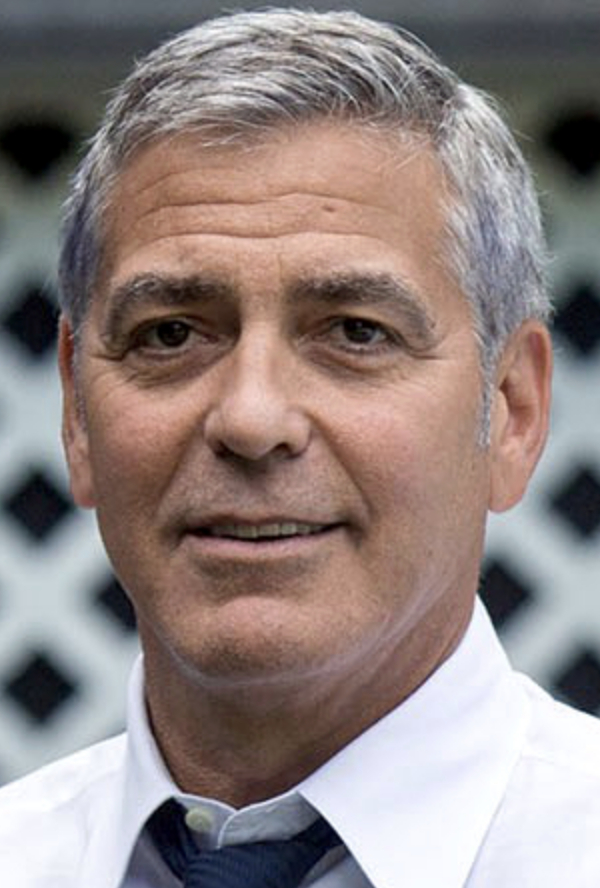
On this date in 1961, Oscar-winning actor George Clooney was born in Lexington, Ky. Clooney, whose aunt was the famous singer Rosemary Clooney, attended Northern Kentucky University. Clooney’s acting career began on television in the early 1980s, where he played in such shows as “Roseanne.” He was a regular on “ER” from 1994-99. Clooney has made numerous movies, including a comic turn as a skeptical, Depression-era Ulysses in “O Brother, Where Art Thou” (2000).
Other notable movies include “Three Kings” (1999), “The Perfect Storm” (2000), “Ocean’s Eleven” (2001, plus two sequels), “Gravity” (2013), “Tomorrowland” (2015) and “Hail, Caesar!” in 2016. Clooney has directed films, including “Good Night, and Good Luck” (2005), and has worked with Stephen Soderbergh, the freethinking director.
Clooney won the 2006 Academy Award for Best Supporting Actor for his role in “Syriana” (2005), received a 2012 Oscar for co-producing “Argo” and was the recipient of the AFI Lifetime Achievement Award in 2018. His Oscar nominations include Best Actor for “Up in the Air” (2009), Best Actor for “Michael Clayton” (2007), and both Best Director and Best Original Screenplay for “Good Night, and Good Luck.” He won Golden Globes for “Syriana,” “O Brother, Where Art Thou?” and “The Descendants” (2011).
His charitable work includes service as a “United Nations Messenger of Peace” since 2008, his advocacy regarding the Darfur conflict and his organization of the “Hope for Haiti” telethon to raise money for the victims of the 2010 earthquake.
PHOTO: Clooney in 2016; White House photo by Pete Souza.
"I don’t believe in heaven and hell. I don’t know if I believe in God. All I know is that as an individual, I won’t allow this life — the only thing I know to exist — to be wasted."
— Clooney profile in the Washington Post (Sept. 28, 1997)
Florence Nightingale
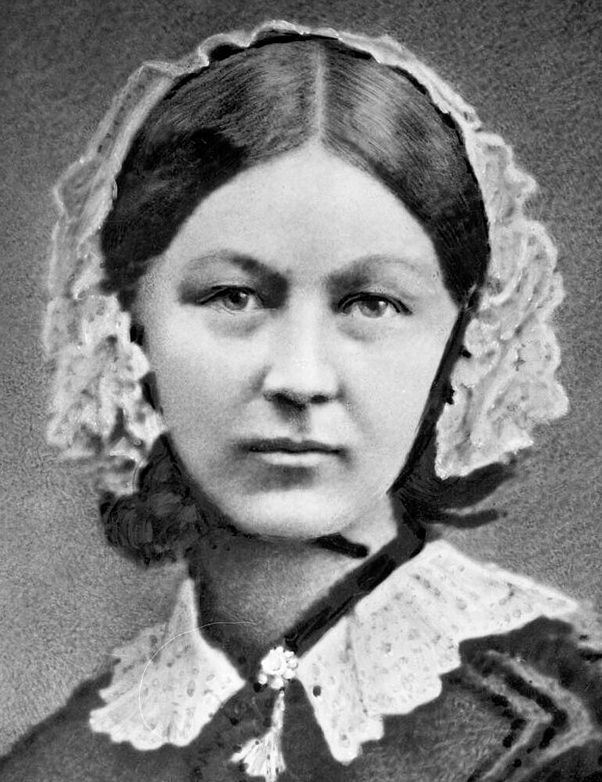
On this date in 1820, Florence Nightingale was born in Florence, Italy, to a well-to-do British family which moved back to England the next year. Refusing to conform to the limited expectations for women of her class, she entered hospital work and was appointed superintendent of a Hospital for Invalid Gentlewomen in London in 1853. To award her for two years of diligent organization in caring for the wounded during the Crimean War, her government offered 50,000 pounds for a Nightingale School for Nurses.
Nightingale was the first woman to receive the Order of Merit, among many other honors. British freethought encyclopedist Joseph McCabe identified her as a non-Christian theist, rejecting rites and ceremonies or denominational claims but mightily impressed by Jesus’ “Sermon on the Mount.” She wrote about her rejection of many religious claims in Fraser’s Magazine in May and July 1873. (D. 1910)
“The Church is now more like the Scribes and Pharisees than like Christ. … What are now called the ‘essential doctrines’ of the Christian religion [Christ] does not even mention.”
— Nightingale letter to Louis Shore Nightingale, Dec. 21, 1896; "The Life of Florence Nightingale: 1862-1910" by Sir Edward Tyas Cook (1913)
Stephen Girard
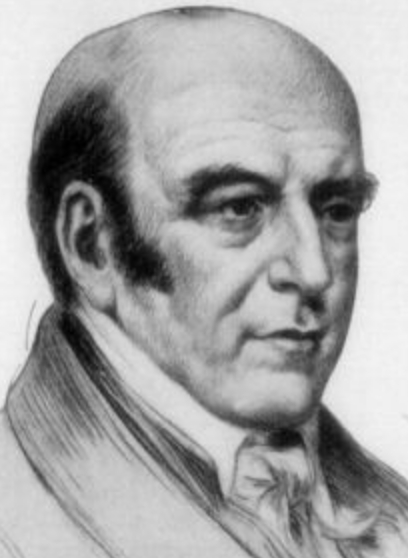
On this date in 1750, Stephen Girard was born in Bordeaux, France. The freethinking philanthropist, who settled in Philadelphia in 1776, liked to say he started life with a sixpence. When he died he was the wealthiest man in America.
Girard went to sea as a cabin boy before he was 14 and worked his way up to commander. He opened a store in his adopted city, then became a ship owner and banker. During the yellow fever outbreak in 1793, when half the residents fled, Girard became a hero. He not only opened his pocketbook to help but volunteered as nurse and hospital manager for two months, working directly with the sick and dying.
Girard, an arch-critic of clergy and Christianity, though he donated to individual churches, named his sailing ships after freethinkers such as Voltaire. Biographer Stephen Simpson wrote that “his opinions were atheistical” and that Girard “utterly disbelieved in all modes of a future existence, and who rejected with inward contempt every formulary of religion, as idle, vain, and unmeaning.”
He left nearly his entire estate, valued at $7.5 million, to charity. He willed more than $5 million for the construction and endowment of a college for orphans, instructing that there should be no sectarian control or instruction (see quote below). Writing in 1894 in Four Hundred Years of Freethought, Samuel Putnam noted the school had about 1,500 students but that Girard’s provisions had been “shamefully violated.” (D. 1831)
"I enjoin and require that no ecclesiastic, missionary, or minister of any sect whatever shall ever hold or exercise any station or duty whatever in the said college; nor shall any such person ever be admitted for any purpose, or as a visitor, within the premises appropriated to the purpose of the said college."
— Girard's bequest terms in endowing a college for orphans, "Biography of Stephen Girard, with his Will Affixed" by Stephen Simpson (1832)
Angelina Jolie
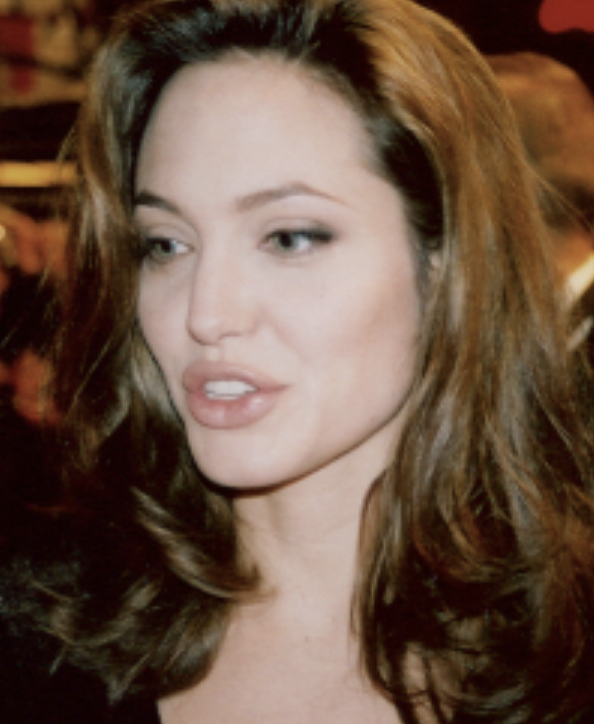
On this date in 1975, Angelina Jolie (née Angelina Jolie Voight) was born in Los Angeles to actor Jon Voight and Marcheline Bertrand. She majored in film at New York University and trained at the Lee Strasberg Theatre Institute as a youth. Jolie has been in almost 40 films to date, including an Oscar-winning performance in “Girl, Interrupted” (1999). Others that were critically acclaimed and became box office hits include “Beyond Borders” (2003), “Lara Croft: Tomb Raider” (2001, sequel 2003), “Changeling” (2008) and “A Mighty Heart” (2007).
Jolie has gained a reputation as a bold and controversial actress, especially for her roles in “Foxfire” (1996) and “Gia” (1998). She earned a Best Actress Oscar nomination for “The Changeling.” Her biggest commercial success to date is the fantasy picture “Maleficent” (2014). In the 2010s she expanded into directing, screenwriting and producing with the war dramas “In the Land of Blood and Honey” (2011), “Unbroken” (2014) and “First They Killed My Father” (2017).
Jolie serves as a Goodwill Ambassador for the United Nations High Commissioner for Refugees. She has traveled extensively to war-torn, impoverished countries, including Sierra Leone, Tanzania and Pakistan. At age 37 she had a double preventive mastectomy after learning she had an 87% chance of developing breast cancer. She had a 12-year relationship (including marriage) and several biological and adopted children with actor Brad Pitt. They divorced in 2019.
Jolie at the 2004 premiere of “Alexander” in Cologne. Photo by Stefan Servos. Creative Commons Attribution-Share Alike 3.0
“For the people who believe in it, I hope so. There doesn’t need to be a God for me.”
— Jolie, responding to the question "Is there a God?" The Onion A.V. Club (Sept. 6, 2000)
Eva Ingersoll
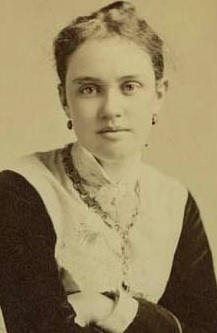
On this date in 1864, Eva Ingersoll (later Ingersoll-Brown) was the first of two daughters born to freethought great Robert G. Ingersoll and Eva Wakefield Ingersoll. Both Eva and her sister Maud shared the same middle name: Robert. The girls were gently tutored, and when the family moved to Washington, D.C., from Illinois, they received lessons in music, art, German, French and Italian, piano and singing. Ingersoll was a pleasing soprano and, like her father, enjoyed public performance and toyed with a concert career.
As a young woman she was described in a sexist manner by the St. Louis Globe-Democrat as “a most decided beauty, being of that fresh, dewy-eyed and virginal type that the English painters depict.” (March 31, 1881.) In 1889 she married Walston Hill Brown, a well-to-do builder of railroads and an agnostic like her. His wedding gift: a spacious estate known as Castle Walston on the Hudson River at Dobbs Ferry, New York. It was a measure of the family devotion that before the marriage, all parties arranged that the newlyweds would live with the Ingersolls six months and the Ingersolls would live with the Browns for six months.
Ingersoll, a feminist and suffragist, became a prominent humanitarian in New York, working with the Advisory Board of the New York Peace Society, the Women’s Trade Union League, the National Child Labor Committee, the New York Society for the Prevention of Cruelty to Animals and the Society for the Advancement of the Colored People. She was president of the Child Welfare League. (D. 1928)
In 1911 Eva Ingersoll described the future woman who “will belong to no church, … will be fettered by no senseless formula or puerile dogma.”— "Rational Mothers and Infidel Gentlemen: Gender and American Atheism, 1865–1915" by Evelyn A. Kirkley (2000)
Eleanor Roosevelt
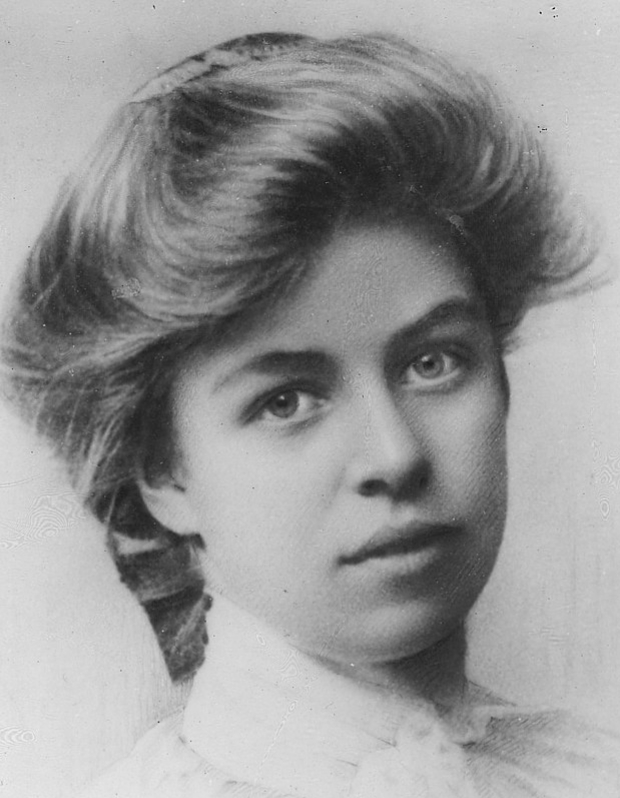
On this date in 1884, Eleanor Roosevelt was born in New York City. At 15 she had the privilege of becoming a student at Allenwood, a progressive prep school in Wimbledon, England, run by French headmistress Marie Souvestre, an avowed agnostic. Roosevelt kept a portrait of her mentor on her desk throughout her life.
She married Franklin Roosevelt, her fifth cousin once removed, in 1905 and bore him six children, one of whom died in infancy. She settled into her role as a political helpmeet as he pursued his political career. After he was struck by polio in 1921, she became his “eyes and ears.” As first lady from 1933-45, she threw herself into reforms, including the championing of social justice. She sat in the “black section” at an auditorium in Birmingham, Alabama, in 1938 and resigned from the Daughters of the American Revolution in 1939 after it barred singer Marian Anderson from its hall.
Roosevelt insisted her husband ensure that African-Americans were not shut out of New Deal projects. She broke tradition by holding press conferences, traveling, lecturing, giving radio broadcasts and writing “My Day,” a six-day-a-week syndicated column that ran until 1962. After FDR’s death in 1945, she continued her activism.
In a “My Day” column (June 23, 1949), she wrote that private and denominational schools “should not receive federal funds; in fact, no tax funds of any kind. The separation of Church and State is extremely important to any of us who hold to the original traditions of our nation. To change these traditions by changing our traditional attitude toward public education would be harmful, I think to our whole attitude of tolerance in the religious area.” (Eleanor Roosevelt Papers Project, George Washington University, 2017)
Whatever her personal beliefs, as author of the Universal Declaration of Human Rights, she championed freedom of conscience: “Everyone has the right to freedom of thought, conscience and religion; this right includes freedom to change his religion or belief.” The declaration was adopted by the United Nations in 1948. (D. 1962)
PHOTO: Roosevelt in 1898; National Archives photo.
"The Bible illustrated by Dore occupied many of my hours — and I think probably gave me many nightmares."
— Eleanor Roosevelt, "This Is My Story" (1937)
John Dewey
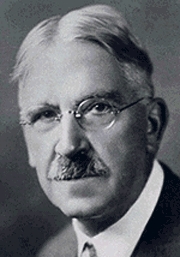
On this date in 1859, educator and philosopher John Dewey was born in Burlington, Vermont. He earned his doctorate at Johns Hopkins University in 1884. After teaching philosophy at the University of Michigan, he joined the faculty of the University of Chicago before moving to Columbia University in 1904. Dewey’s special concern was education reform. He promoted learning by doing rather than learning by rote.
Of his more than 40 books, many of his most influential concerned education, including My Pedagogic Creed (1897), Democracy and Education (1902) and Experience and Education (1938). He was one of the founders of the philosophy of pragmatism. A humanitarian, he was a trustee of Jane Addams‘ Hull House, supported labor and racial equality and was at one time active in campaigning for a third political party. He chaired a commission convened in Mexico City in 1937 inquiring into charges made against Leon Trotsky during the Moscow show trials.
Raised by an evangelical mother, Dewey had rejected faith by his 30s. Although he disavowed being a “militant” atheist, when his mother complained that he should be sending his children to Sunday school, he replied that he had gone to Sunday school enough to make up for any truancy by his children. As a pragmatist, he judged ideas by the results they produced. As a philosopher, he eschewed an allegiance to fixed and changeless dogma and superstition.
He sat on the advisory board of the First Humanist Society of New York, was one of the original 34 signatories of the first Humanist Manifesto in 1933 and was elected an honorary member of the Humanist Press Association in 1936. He once said that since he was not a theist, he thought that made him an atheist but he preferred to be known as a humanist.
Dewey married Harriet Alice Chipman in 1886 shortly after she graduated with a bachelor of philosophy degree from the University of Michigan. They had six children and adopted another. After she died from cerebral thrombosis in 1927. Dewey married Estelle Roberta Lowitz Grant in 1946 and they, despite Dewey being 87, adopted two siblings.
He died of pneumonia at home in New York City at age 92. (D. 1952)
“[H]ave not some religions, including the most influential forms of Christianity, taught that the heart of man is totally corrupt? How could the course of religion in its entire sweep not be marked by practices that are shameful in their cruelty and lustfulness, and by beliefs that are degraded and intellectually incredible?”
— Dewey, quoted in "Intelligence in the Modern World: John Dewey's Philosophy," ed. Joseph Ratner (1939)
Clara Barton
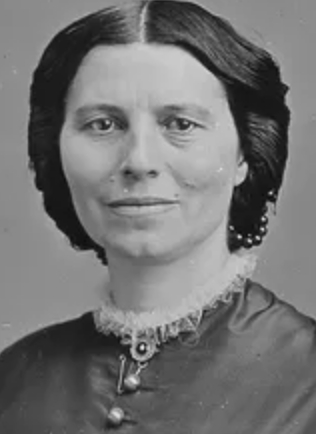
On this date in 1821, American Red Cross founder Clarissa Harlowe Barton (known as Clara) was born in North Oxford, Mass., the youngest of five children. Her parents were members of the Oxford Universalist Church. Barton was deistic and remained a creedless Universalist throughout her life. She was reading by the time she entered school at age 4 and earned her teaching certificate at 17. At 29 she entered the Liberal Institute in Clinton, N.Y., to hone her teaching skills. By the time the Civil War broke out, she was working in the U.S. Patent Office in D.C., where she organized a relief program for soldiers.
When she learned that soldiers were dying from lack of medical supplies after the First Battle of Bull Run, she organized a successful relief drive. The U.S. Surgeon General granted her a pass to travel with Union Army ambulances, which she did for the next three years. After encountering the Red Cross in Europe, she came back to the U.S., lobbied for ratification of the Treaty of Geneva and founded the American Red Cross in 1881. She resigned as its director in 1904. She was a supporter of woman’s suffrage and other liberal reforms.
Barton never married or had children and died of pneumonia at age 90 at her home in Glen Echo, Maryland. (D. 1912)
